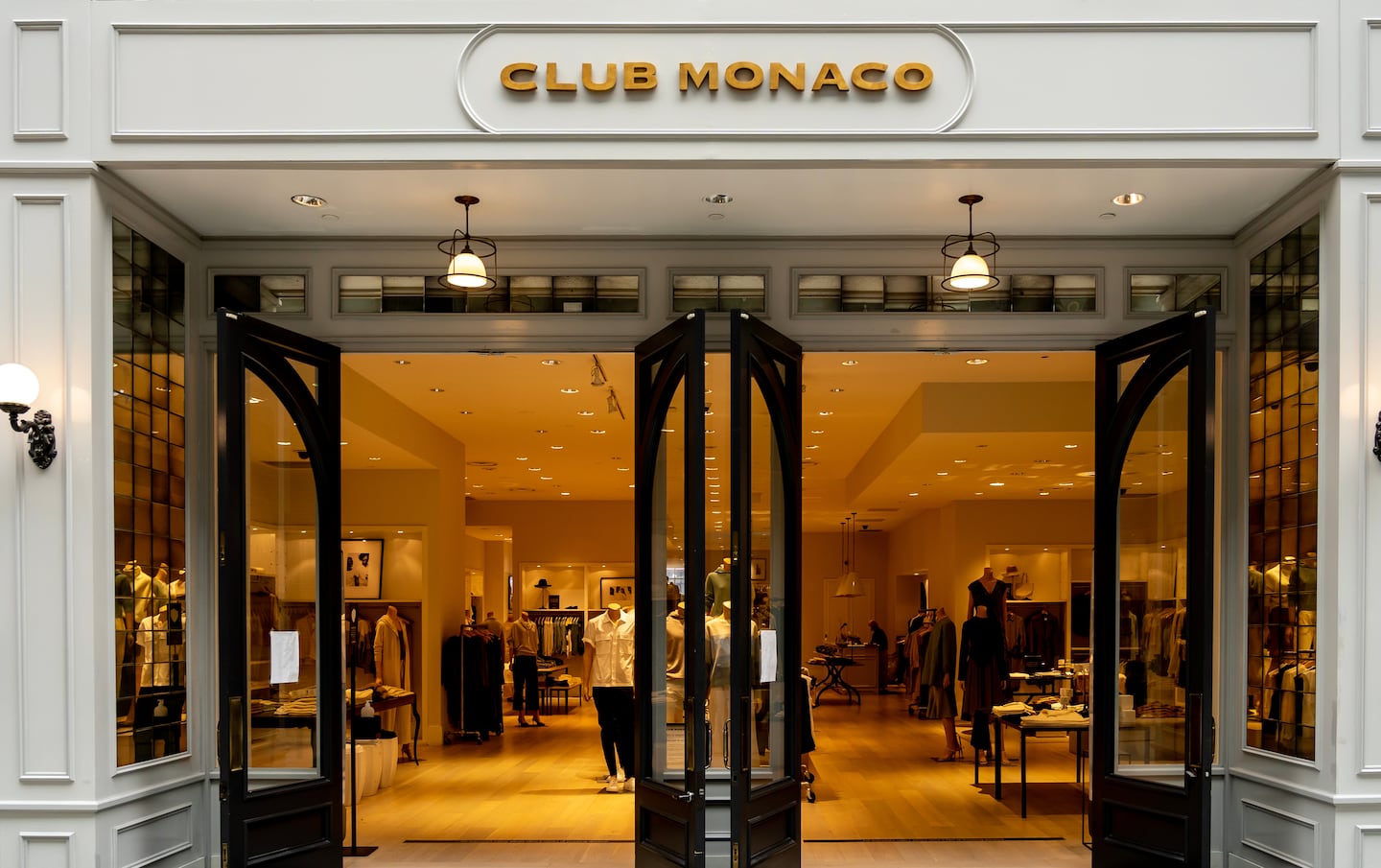
The Business of Fashion
Agenda-setting intelligence, analysis and advice for the global fashion community.

Agenda-setting intelligence, analysis and advice for the global fashion community.

Ralph Lauren is the latest retailer to test out the theory that shrinking may be the best way to grow.
The company announced Thursday, May 13 that it sold Club Monaco to private equity firm Regent, L.P. for an undisclosed sum. Insiders say the retailer had been struggling in recent years and was not well-positioned to weather the pandemic, during which consumers may have preferred sweatsuits over Club Monaco’s polished blouses.
By offloading Club Monaco, the pricier, dressier version of Banana Republic that Ralph Lauren owned for 22 years, the American fashion label has removed another distraction from an elusive goal: growing sales at its core brand. The company said in 2018 it planned to grow revenue by $1 billion within five years but has made little progress on that front, with sales of $6.16 billion in the year ending March 2020, down from $6.31 billion the previous year.
Ralph Lauren, which declined to comment for this story, joins a growing stable of giant retailers that trimmed their brand portfolios in recent months. Gap shut down its men’s activewear label Hill City late last year and recently sold Intermix to private equity firm Altamont Capital Partners. L Brands is spinning off Victoria’s Secret and Bath & Body Words into two separate entities, while even LVMH has rid itself of some of its smaller brands. Last year, the luxury behemoth sold Nicholas Kirkwood and put Fenty on hiatus.
ADVERTISEMENT
The sale “concludes” Ralph Lauren’s evaluation of its portfolio in an effort to focus on core brands, the company said in a statement. It wasn’t a surprise for anyone in the industry, according to Hemant Kalbag, managing director at Alvarez & Marsal Consumer and Retail Group, a consulting firm.
“In terms of growth [potential] and overall size of the company, Club Monaco is still relatively small,” Kalbag said. “So this allows Ralph Lauren to focus on core brands without shedding core revenue.”
Ralph Lauren has made strides in cutting costs, including store closures and reducing headcount, and has generally done a good job controlling the bottom line, said Simeon Siegel, analyst at BMO Capital Markets.
“But getting more people into the door has remained outside their control,” he added.
In other words, despite Ralph Lauren’s efforts in marketing, new customer acquisition has been a challenge. As part of the Covid-19 e-commerce boom, Ralph Lauren’s peers in the American fashion space such as Tapestry reported triple-digit growth in digital sales. But in its latest earnings report, Ralph Lauren posted 20 percent digital sales growth overall and only 10 percent growth in North America.
“Ralph online has been very, very weak,” said Neil Saunders, managing director of GlobalData Retail. “In some ways, Club Monaco wasn’t the problem for them … The brand is confused. One minute it’s high-end and the next it’s something you see in a grotty casual corner.”
Saunders points to Ralph Lauren’s luxury stores, for instance, where shoppers pay $900 for cashmere sweaters and silk-linen trousers for the brand’s Purple Label collection. But across town in a Macy’s, shoppers can also find a Polo Ralph Lauren pullover or T-shirt for under $35.
The reality is that very large companies have a hard time getting larger.
Continuing to streamline wholesale accounts, avoiding promotions, and improving profit margins will be critical to Ralph Lauren’s future success, Saunders and others say. Even so, growth is more difficult for multi-billion-dollar brands than it is for smaller players in the field.
ADVERTISEMENT
“The reality is that very large companies have a hard time getting larger,” Siegel said. “The trick next year is who will take the pandemic learnings to heart and who will forget them. [Retailers] need to show improvement on the business side rather than fighting for growth for growth’s sake.”
As for Club Monaco, Regent may be a better home to grow its branding without distractions, said Kalbag. The private equity group also owns Escada and lingerie brand La Senza.
Related Articles:
Will Ralph Lauren’s 50th Anniversary Extravaganza Help it Survive Another 50 Years?
Ralph Lauren Wants to Increase Sales by $1 Billion Over the Next 5 Years
The company has continued to struggle with growing “at scale” and issued a warning in February that revenue may not start increasing again until the fourth quarter.
The British musician will collaborate with the Swiss brand on a collection of training apparel, and will serve as the face of their first collection to be released in August.
Designer brands including Gucci and Anya Hindmarch have been left millions of pounds out of pocket and some customers will not get refunds after the online fashion site collapsed owing more than £210m last month.
Antitrust enforcers said Tapestry’s acquisition of Capri would raise prices on handbags and accessories in the affordable luxury sector, harming consumers.